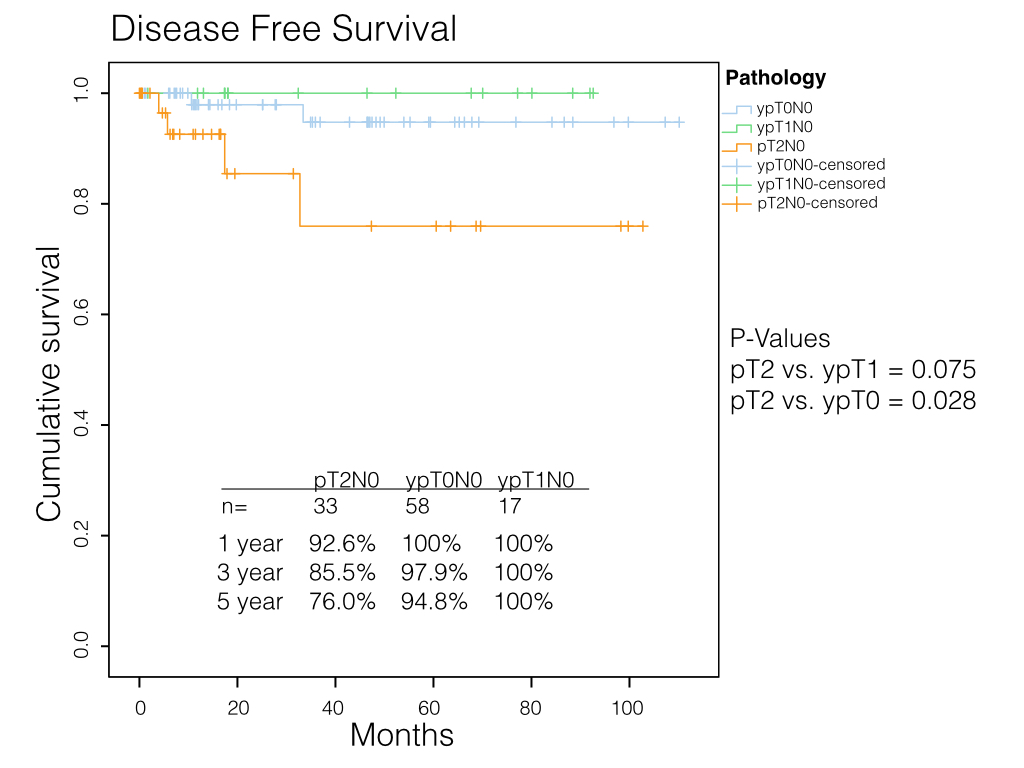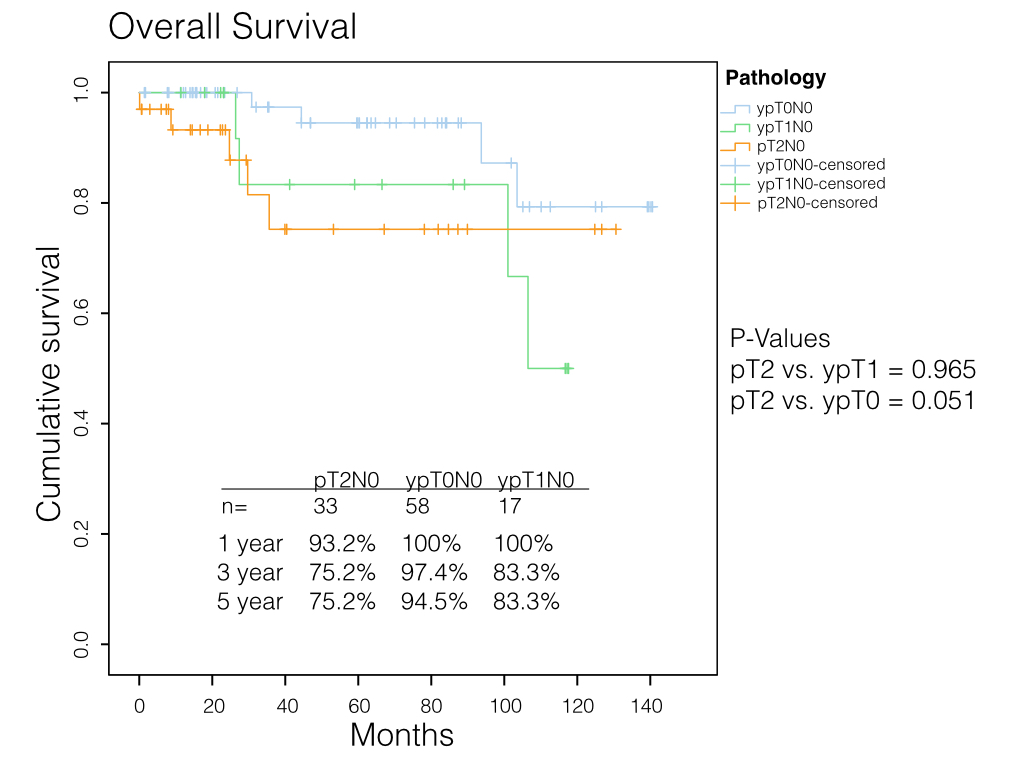Are we undertreating intramuscular rectal cancer?
*Anne M Dinaux, *Lieve GJ Leijssen, Hiroko Kunitake, Liliana G Bordeianou, David L Berger
Massachusetts General Hospital, Boston, MA
Objective
To determine whether early stage patients with rectal cancer should receive neo-adjuvant treatment. Intramuscular rectal tumors without obvious nodal involvement do not receive neo-adjuvant therapy at this time, however, the outcomes of patients with more advanced disease who have excellent responses to treatment and are found to have minimal residual disease may do better than patients with early stage disease who proceed directly to resection.
Design
Retrospective analyses on prospectively maintained, IRB approved dataset.
Setting
Tertiary care center
Patients
Patients with pT1N0M0-tumors were compared to patients with ypT0N0M0-tumors, whereas pT2N0M0-patients were compared to ypT1N0M0- and ypT0N0M0-patients. All patients in this consecutive series received an R0-resection at a single institution between 2004-2015. Patients who developed distant metastases within 30 days of resection were excluded.
Main Outcome Measures
Disease recurrence and survival
Results
pT2N0-patients (n=33) demonstrated significantly shorter median recurrent disease free survival (18.4 months [95%CI:6.9-50.1]) than ypT1N0-patients (n=17, 58.1 months [95%CI: 21.8-98.3]; P=0.012) and ypT0N0-patients (n=58, 43.9 months [95%CI: 14.3-73.9]; P=0.015). Overall survival was 24.6 months (95%CI: 9.0-72.6) versus 59.0 (95%CI: 23.1-103.8; P=0.044) and 59.8 months (95%CI: 17.7-87.6; P=0.033), respectively. See fig.1&2. There were no significant differences in outcomes between ypT0N0- and pT1N0-patients.
Conclusions
pT2N0-patients had significantly worse long-term outcomes than ypT0/T1N0M0-patients, which suggests that patients with an intramural tumor might benefit from neoadjuvant therapy. 

Back to 2017 Posters
